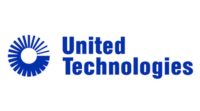Honeywell announced it is no longer pursuing a strategic combination with United Technologies due to their unwillingness to engage in negotiations.
Honeywell was interested in a combination because it saw compelling value creation for both sets of shareholders and a readily executable transaction due to two largely complementary business portfolios, according to a Honeywell press release.
In the same release, Honeywell said it strongly disagrees with United Technologies’ characterization of the regulatory and customer risks associated with the transaction. Part of the statement said, “We remain confident that the regulatory process would not have presented a material obstacle to a transaction. United Technologies felt the same way as we do when they approached us in May, 2011 and in April, 2015. In our approach to their chairman and their CEO on February 19, 2016, we had hoped to continue amicable and quiet discussions of a combination. In fact, we were told by them during the meeting that such a combination would be fabulous, they would take it very seriously, and they would get back to us with questions within a week in anticipation of their upcoming board meeting.”
Both companies have agreed in the recent past that the industrial logic was compelling in a very doable transaction. “From both an industrial logic and shareholder value perspective, Honeywell and United Technologies are a great match and that is why the two companies have been talking about a combination for more than 15 years,” said Honeywell Chairman and CEO, Dave Cote. “We made a full and fair offer that would have greatly benefitted both sets of shareowners. Considerable value would have been added through the $3.5 billion of very achievable cost synergies (6 percent of UTX sales, 4 percent of total sales) and application of Honeywell management practices, especially our extensive software capability and cost management that would support needed product reinvestment. It also would have created the opportunity to construct an excellent core growth portfolio. However, continuing to try to negotiate with an unwilling partner is inconsistent with our disciplined acquisition process.”






